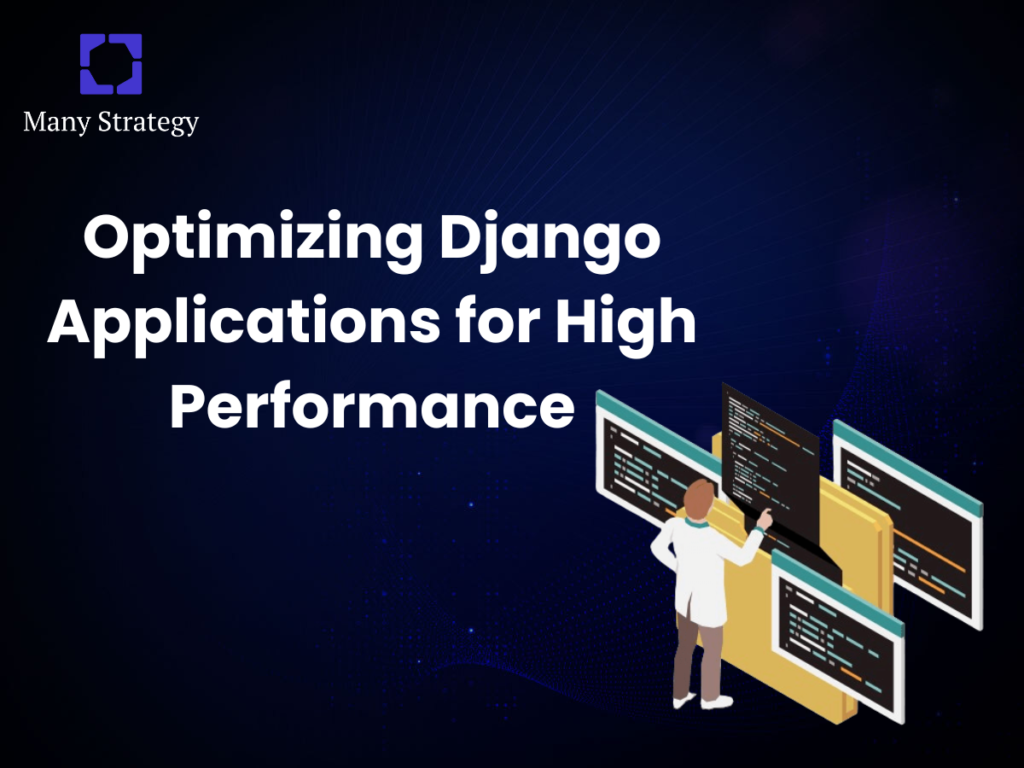In the competitive world of web development, ensuring your Django applications perform at their best is crucial. High performance not only enhances user experience but also boosts your application’s scalability and reliability. Whether you’re seeking Django development services from a top-tier django development company or collaborating with a django development agency, understanding how to optimize your Django applications can make all the difference.
Understanding Django Features
Django, a high-level Python web framework, comes packed with features that streamline web development. It promotes rapid development and clean, pragmatic design, which are among the most significant Django features. However, leveraging these features effectively requires a deep understanding of the framework. Let’s explore some key areas where optimization can lead to significant performance improvements.
Identifying and Resolving Django Issues
Every application encounters issues that can impede performance. Common Django issues include slow database queries, inefficient use of caching, and improper handling of static files. Identifying these issues early is critical. Utilizing Django’s built-in tools like the Django Debug Toolbar can help you monitor performance and pinpoint bottlenecks. Additionally, logging and monitoring tools can provide insights into performance trends and potential issues.
Database Optimization
Databases are often the bottleneck in web applications. Optimizing your database queries is essential for high performance. Here are some tips:
- Indexing: Proper indexing can significantly speed up database queries. Ensure that frequently queried fields are indexed.
- Query Optimization: Use Django’s ORM efficiently by writing optimal queries. Avoid N+1 query issues by using
select_relatedandprefetch_related. - Database Caching: Implement database caching to reduce the load on your database. Tools like Memcached or Redis can help store frequently accessed data in memory.
Caching Strategies
Caching is a powerful way to improve performance by storing copies of expensive computations or frequently accessed data. Django provides several caching mechanisms:
- File System Caching: Stores cache in files on the disk.
- Database Caching: Stores cache in your database.
- In-Memory Caching: Uses memory to store cache, which is faster than disk-based caching. Memcached and Redis are popular choices.
Implementing these caching strategies effectively can drastically reduce response times and server load.
Efficient Use of Middleware
Middleware is a core component of Django’s request/response processing. However, too many middleware layers can slow down your application. Evaluate your middleware stack and ensure only essential middleware is enabled. Custom middleware should be optimized for performance, and unnecessary processing should be avoided.
Static and Media Files Handling
Handling static and media files efficiently is crucial for performance. Use Django’s collectstatic command to gather static files in a single location for efficient serving. Additionally, use a Content Delivery Network (CDN) to serve static and media files. CDNs cache files at multiple locations worldwide, reducing latency and improving load times.
Authorization in Django
Authorization is a vital aspect of any web application. In Django, authorization mechanisms like permissions and user roles can impact performance if not implemented correctly. Ensure that permission checks are optimized and cached where possible. Using Django’s built-in authorization tools can simplify this process while maintaining high performance.
Load Balancing and Scaling
As your application grows, scaling becomes necessary to handle increased traffic. Load balancing distributes traffic across multiple servers, ensuring no single server is overwhelmed. Tools like NGINX and HAProxy can be used for load balancing Django applications. Additionally, consider using horizontal scaling by adding more servers to handle increased load.
Asynchronous Processing
Django now supports asynchronous views, which can handle multiple tasks concurrently without blocking the main thread. This is particularly useful for I/O-bound tasks such as network requests. Utilizing asynchronous views can improve performance by allowing Django to handle more requests simultaneously.
Monitoring and Profiling
Continuous monitoring and profiling are essential for maintaining high performance. Tools like New Relic, Datadog, and Django Debug Toolbar provide insights into application performance and help identify bottlenecks. Regularly monitoring your application ensures that you can address issues promptly before they impact users.
Collaborating with a Django Development Company
When it comes to optimizing your Django applications, collaborating with a professional django development company can be incredibly beneficial. These companies bring expertise and experience, ensuring your application is optimized for peak performance. Whether you need help with database optimization, caching strategies, or asynchronous processing, a django development agency can provide the necessary support and guidance.
Conclusion
Optimizing Django applications for high performance is a multifaceted process involving database optimization, caching, efficient middleware use, proper handling of static files, and effective authorization mechanisms. By addressing common django issues and leveraging advanced Django features, you can ensure your application runs smoothly and efficiently.
Whether you’re working with Django development services, partnering with a django development company, or consulting with a django development agency, following these best practices will help you achieve high performance in your Django applications. Remember, continuous monitoring and optimization are key to maintaining a robust and scalable web application.wer of Django and elevate your application’s file handling capabilities to new heights.






